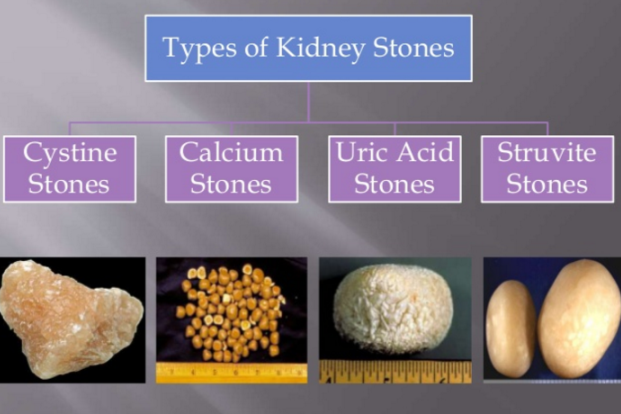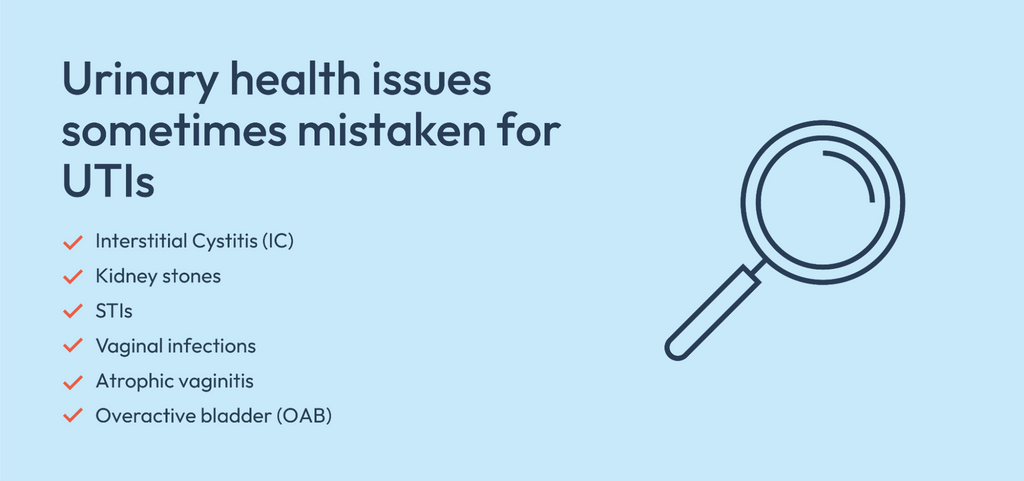Exploring Kidney Stones vs UTI: A Clear Overview of Reasons, Signs And Symptoms, and Solutions
Exploring Kidney Stones vs UTI: A Clear Overview of Reasons, Signs And Symptoms, and Solutions
Blog Article
Understanding the Trick Differences Between Kidney Stones and Urinary System System Infections: A Comprehensive Overview for People
Comprehending the differences between kidney stones and urinary system tract infections (UTIs) is necessary for individuals that might be experiencing comparable signs yet deal with significantly various wellness challenges. While both conditions can materialize pain in the reduced abdominal area or back, their hidden causes, analysis strategies, and therapy procedures split significantly. A nuanced comprehension of these differences not just aids in exact self-assessment yet additionally informs discussions with healthcare carriers. As we check out these vital aspects, it becomes clear that acknowledging the one-of-a-kind characteristics of each problem can greatly influence patient end results. What might be the most effective approach to addressing these differences?
Summary of Kidney Stones
The development of kidney stones, a commonly devastating and excruciating condition, emphasizes the essential importance of maintaining renal health. Kidney stones, additionally understood as kidney calculi, are strong masses that establish from crystals in the urine. These stones can differ in size from a grain of sand to a golf round and can live in any type of component of the urinary system system. The key kinds of kidney stones consist of calcium oxalate, calcium phosphate, uric acid, struvite, and cystine stones, each with unique reasons and threat aspects.
Several elements contribute to the formation of kidney stones. In addition, metabolic disorders and certain medical problems may incline people to stone formation.
Symptoms of kidney stones can include serious flank hematuria, queasiness, and pain, which often prompt immediate medical analysis. Treatment alternatives differ, varying from boosted fluid intake and nutritional adjustments to medical interventions such as lithotripsy or surgical elimination, relying on the dimension and area of the stones. Comprehending these facets is necessary for effective avoidance and monitoring.
Overview of Urinary Tract Infections
Urinary system system infections (UTIs) represent a typical yet significant health problem, affecting millions of individuals yearly. These infections take place when bacteria go into the urinary system, which includes the kidneys, ureters, bladder, and urethra.
The danger factors for creating a UTI include sex-related task, particular kinds of birth control, urinary system retention, and a history of previous infections. Uncomplicated UTIs are generally restricted to the bladder and are more common in healthy individuals, while complicated UTIs may entail the kidneys and take place in those with underlying health problems.
Motivate medical diagnosis and therapy are necessary to protect against complications, such as frequent infections or kidney damages (Kidney Stones vs UTI). Commonly, UTIs are treated with antibiotics, and precautionary procedures can be utilized for those with regular incidents
Typical Signs And Symptoms Contrast
Signs of urinary system tract infections and kidney stones can frequently overlap, resulting in confusion in diagnosis. Both conditions can offer with discomfort in the reduced abdominal area or back, however the nature and location of the pain frequently vary. In urinary system system infections (UTIs), individuals typically experience a burning sensation throughout peeing, regular advises to urinate, and cloudy or strong-smelling pee. In contrast, kidney stones often see this page tend to create serious, pain that emits from the back to the lower abdomen and groin, often referred to as colicky discomfort.
Additionally, UTIs might be come with by fever and chills, especially in extra severe cases, while kidney stones can lead to queasiness and recommended you read throwing up due to extreme discomfort. While discomfort during urination is a trademark of UTIs, kidney stones normally offer with even more acute pain episodes, which may come and go.
Diagnosis Techniques
Exactly how can health care specialists properly differentiate between kidney stones and urinary system system infections? The analysis procedure starts with a comprehensive medical history and an in-depth review of the patient's symptoms. Clinicians often perform a physical assessment, which may expose tenderness in the abdomen or flank region, guiding the analysis path.
Research laboratory examinations play a critical duty in comparing these two conditions. Kidney Stones vs UTI. A urinalysis can recognize the visibility of blood, crystals, or germs, which are a sign of either condition. In instances of urinary system tract infections, the urinalysis may reveal a substantial existence of white blood cells and nitrites, while kidney stones might provide with particular crystals
Imaging studies, such as stomach ultrasound or computed tomography (CT) scans, are important for visualizing kidney stones. These imaging methods make it possible for doctor to analyze stone size, location, and potential obstructions in the urinary system system. On the other hand, urinary system infections normally do not require imaging unless complications are presumed.
Together, these analysis methods encourage health care specialists to precisely differentiate and identify between kidney stones and urinary system tract infections, making certain that clients obtain suitable treatment and management.
Treatment Alternatives and Prevention
While both kidney stones and urinary system tract infections (UTIs) need punctual therapy, their administration approaches vary dramatically.
The treatment for kidney stones usually involves discomfort monitoring, hydration, and in many cases, medical treatments such as extracorporeal shock wave lithotripsy (ESWL) or ureteroscopy to get rid of or break down stones. People are frequently suggested to increase fluid intake to assist in stone flow and reduce recurrence. Dietary adjustments might additionally be essential, depending on the stone type.
In contrast, UTIs are mainly treated with prescription antibiotics to remove the microbial infection. The details antibiotic suggested relies on the germs determined and neighborhood resistance patterns. Added actions, such as increased liquid consumption and urinary system anesthetics, might assist ease signs and symptoms.
Avoidance methods differ too; for kidney stones, keeping appropriate hydration and adhering to nutritional restrictions can be reliable. For UTIs, preventive strategies include correct hygiene techniques, urinating after sexual intercourse, and possibly prophylactic antibiotics for recurring infections. Comprehending these therapy and prevention methods is vital for reliable management and to decrease the risk of issues connected with both conditions.
Verdict

Comprehending the distinctions in between kidney stones and urinary system infections (UTIs) is vital for clients that may be experiencing similar signs and symptoms yet deal with vastly various health obstacles. The main types of kidney stones consist of calcium oxalate, calcium phosphate, uric acid, struvite, and cystine stones, each with distinct causes and risk factors.

Report this page